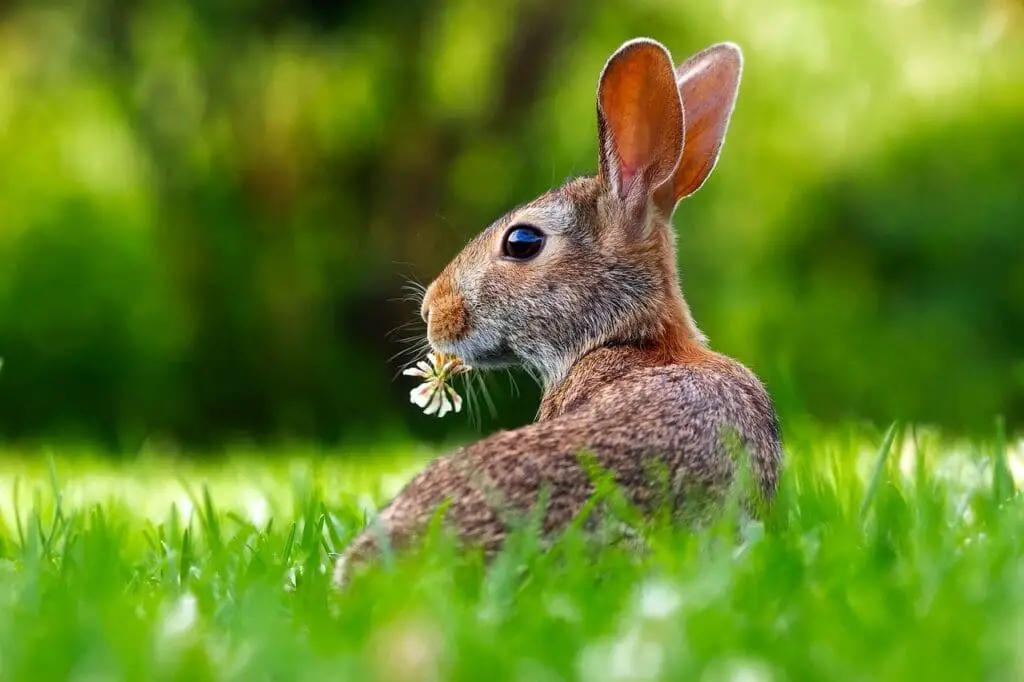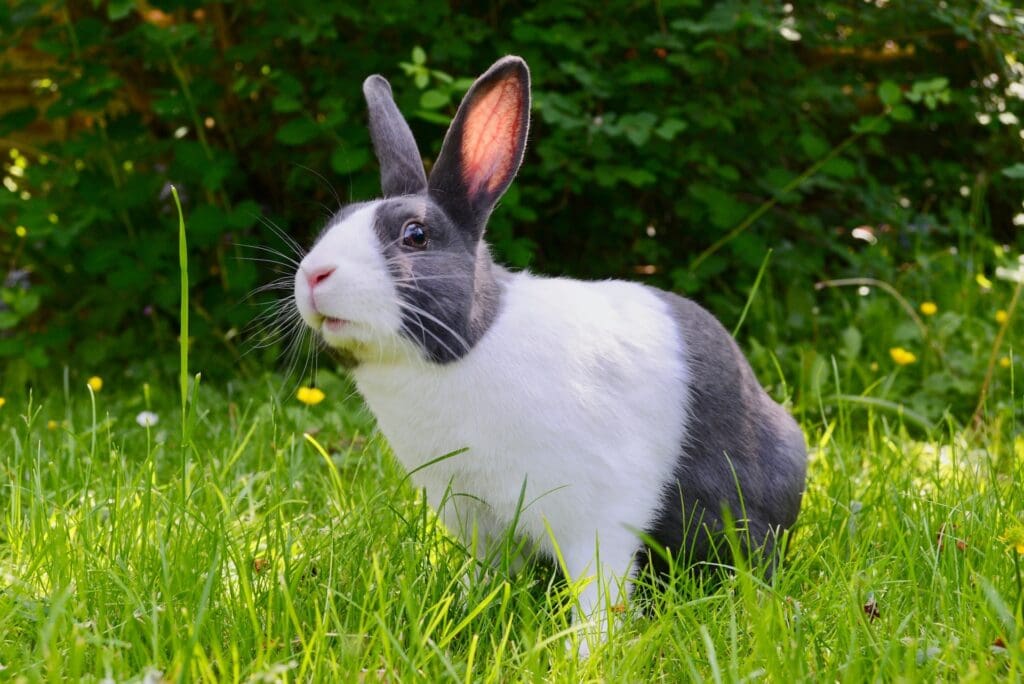Are you wondering if your beloved bunny can eat bamboo? The answer is yes! Rabbits can indeed consume bamboo as part of their diet.
Bamboo, a type of grass, is not only safe for rabbits but also provides them with several nutritional benefits. As herbivores, rabbits require a high-fiber diet to maintain optimal digestive health, and bamboo is an excellent source of fiber. It aids in promoting proper digestion and preventing gastrointestinal issues such as bloating or constipation. Additionally, bamboo contains essential nutrients like vitamins A and C, which are crucial for your rabbit’s overall well-being.
However, it’s important to introduce bamboo gradually into your rabbit’s diet to avoid any potential digestive upset. In this article, we will delve into the specifics of incorporating bamboo into your furry friend’s meals and explore both its advantages and risks. So let’s get started on discovering how bamboo can be a healthy addition to your rabbit’s dietary regimen!
Key Takeaways
- Bamboo is a safe and nutritious food for rabbits, high in fiber and essential nutrients like vitamins A and C.
- It is important to introduce bamboo gradually to rabbits to avoid digestive upset.
- Rabbits should have a diverse diet that includes high-quality hay, leafy greens, fruits, and vegetables, with bamboo as an occasional treat.
- Proper preparation, such as washing and removing tough outer layers, is necessary before feeding bamboo to rabbits.
Introduction to Rabbit Dietary Habits
Understanding a Rabbit’s Natural Diet
To truly understand what a rabbit should eat, you’ll need to delve into their natural diet.
Rabbits are herbivores and have evolved to consume mostly grasses, leaves, and other plant materials. Their dietary habits include the following:
- Grass: The primary component of a rabbit’s natural diet is grass. It provides essential nutrients like fiber, which aids in digestion.
- Hay: High-quality hay is crucial for rabbits as it mimics the long fibers found in their natural habitat.
- Leafy greens: Rabbits enjoy a variety of leafy greens such as lettuce, kale, and spinach for added nutrients.
- Limited fruits and vegetables: While rabbits can eat certain fruits and vegetables in moderation, they should be given sparingly due to high sugar content.
Understanding these aspects of a rabbit’s natural diet will help ensure they receive proper nutrition and maintain their overall health.
Overview of the Diverse Food Choices for Rabbits
A diverse diet is crucial for rabbits as it provides them with essential nutrients and helps maintain their overall health. Including a variety of foods in your rabbit’s diet ensures they receive a balanced mix of vitamins, minerals, and fiber. This promotes proper digestion, supports dental health, and boosts their immune system, keeping them happy and healthy.
What is Bamboo?
Bamboo is a versatile plant that belongs to the grass family and is known for its rapid growth. It has been used for various purposes, including construction, furniture making, and even as a food source.
In terms of nutrition, bamboo is low in calories but rich in fiber, vitamins, and minerals such as potassium and manganese.
Quick Insight into the Bamboo Plant
Bamboo, with its tall stalks and lush green leaves, provides a picturesque backdrop in any garden.
For rabbits, bamboo offers several benefits: it’s high in fiber, which aids in digestion; it’s low in calories, helping to prevent obesity; it provides mental stimulation as a chew toy; and it can help wear down their continuously growing teeth. However, there are risks involved too.
Bamboo shoots contain cyanogenic glycosides that can be toxic if consumed in large quantities by rabbits. Additionally, some species of bamboo may have sharp edges that could potentially harm the rabbit’s mouth or digestive system.
It’s crucial to introduce bamboo gradually into the rabbit’s diet and monitor for any adverse reactions or signs of discomfort.
The Nutritional Profile of Bamboo
With its vibrant green leaves and towering stalks, bamboo presents a feast of nutrients that nourish and invigorate. Rabbits can benefit from the nutritional benefits offered by bamboo. It’s rich in fiber, which aids in digestion and prevents gastrointestinal problems. Additionally, bamboo provides essential vitamins and minerals like vitamin C, potassium, and manganese. However, caution should be exercised as certain varieties of bamboo may contain toxins that can be harmful to rabbits if consumed in large quantities.
Can Rabbits Actually Eat Bamboo?
When it comes to analyzing bamboo as a food source for rabbits, there are a few key points to consider. First, bamboo is known to be low in calories and high in fiber, which can benefit a rabbit’s digestive system. However, it’s important to note that not all types of bamboo are safe for rabbits to consume. Expert opinions on feeding bamboo to rabbits vary, with some suggesting limited amounts as an occasional treat, while others caution against it altogether due to potential health risks.
Bamboo can be a sustainable food source for rabbits as it grows rapidly and requires minimal resources. However, it is important to note that some rabbits may have allergies to bamboo, so it should be introduced gradually into their diet. To provide further insight, here is a table comparing the nutritional composition of bamboo with other common rabbit foods:
| Food | Fiber Content (%) | Nutritional Value |
| Bamboo | 20 | High |
| Timothy Hay | 32 | Moderate |
| Carrots | 2 | Low |
This table highlights how bamboo’s fiber content falls between timothy hay and carrots, making it a valuable addition to a rabbit’s diet.
The Benefits of Bamboo in a Rabbit’s Diet
Bamboo can have positive impacts on a rabbit’s health due to its nutritional value and high fiber content. Case studies have shown that rabbits thrive on diets that include bamboo, with improved digestion and overall well-being.
Incorporating bamboo into a rabbit’s diet can provide essential nutrients and contribute to their overall health and vitality. You’ll be amazed at the positive impacts bamboo can have on your rabbit’s health, including:
- High Nutritional Value: Bamboo is rich in fiber, which aids digestion and prevents gastrointestinal issues.
- Dental Health: Chewing bamboo promotes healthy teeth wear and helps prevent dental problems.
- Weight Management: The low-calorie content of bamboo makes it an excellent choice for rabbits on a diet.
- Hydration: Bamboo contains high water content, keeping your rabbit hydrated and preventing dehydration-related issues.
Risks of Feeding Bamboo to Rabbits
When it comes to feeding bamboo to rabbits, there are some potential health issues that you need to be aware of.
While bamboo can provide certain benefits, such as being high in fiber and low in calories, it also contains compounds that may be toxic to rabbits if consumed in large quantities.
Therefore, it’s important to understand the risks associated with feeding bamboo to rabbits and make informed decisions about their diet.

Although rabbits can eat bamboo, excessive consumption may lead to potential health issues. It’s important to be aware of the following risks when feeding bamboo to your rabbit:
- Potential allergies: Some rabbits may develop allergic reactions to bamboo, such as skin irritations or respiratory problems.
- Digestive issues: Bamboo is high in fiber, and while this can be beneficial for rabbits, too much fiber can cause gastrointestinal disturbances like bloating or diarrhea.
Monitor your rabbit’s diet and consult a veterinarian if you notice any adverse reactions or digestive problems.
How to Introduce Bamboo into Your Rabbit’s Diet
To introduce bamboo into your rabbit’s diet, it’s important to properly prepare it and gradually incorporate it into their meals.
Start by washing the bamboo thoroughly to remove any dirt or pesticides. Then, cut the bamboo into small, manageable pieces for your rabbit to chew on.
Finally, slowly introduce the bamboo by offering a small amount at first and gradually increasing the portion over time. This will help your rabbit adjust to this new food source and prevent any digestive issues.
Preparing Bamboo for Your Rabbit
You can easily prepare bamboo for your rabbit by washing it thoroughly and removing any tough outer layers. This is important to ensure that your rabbit doesn’t ingest any dirt or chemicals that may be on the bamboo. Additionally, removing the tough outer layers will make the bamboo more digestible for your rabbit.
Gradual Introduction of Bamboo in Diet
Introducing bamboo gradually into your furry friend’s meals can help ensure a smooth transition to this beneficial dietary addition. Rabbits have delicate digestive systems, so it’s essential to avoid any stomach upsets by making a gradual transition. By slowly introducing bamboo into their diet, you can provide your rabbit with a nutritious and enjoyable food source while minimizing the risk of any adverse effects.
Frequently Asked Questions
How much bamboo should I feed my rabbit?
When feeding bamboo to rabbits, it is important to consider the quantity and nutritional value. Bamboo can be given in small amounts as a treat, but should not replace their main diet of hay and vegetables.
Can bamboo be the main source of food for rabbits?
Bamboo can be a nutritious addition to a rabbit’s diet, but it should not be the main source of food. While bamboo contains some essential nutrients, rabbits require a diverse diet for optimal health.
Can rabbits eat bamboo leaves and stems?
Rabbits can eat bamboo leaves and stems, but there are pros and cons. Bamboo is low in calories, high in fiber, and provides essential nutrients. However, it should be fed in moderation as excessive consumption can cause digestive and other issues.
Are there any alternatives to bamboo that are safe for rabbits to eat?
While bamboo is a good source of nutrition for rabbits, other options include hay, leafy greens, and vegetables such as carrots and broccoli.
Conclusion
Rabbits can indeed eat bamboo as part of their diet. Bamboo provides numerous benefits such as high fiber content and essential nutrients. However, it’s important to introduce bamboo gradually into a rabbit’s diet to avoid digestive issues. Additionally, it’s crucial to ensure that the bamboo is fresh and free from any pesticides or chemicals.
As with any new food, monitoring your rabbit’s reaction and consulting with a veterinarian is recommended. Remember, a well-balanced diet is essential for your furry friend’s overall health and well-being!

